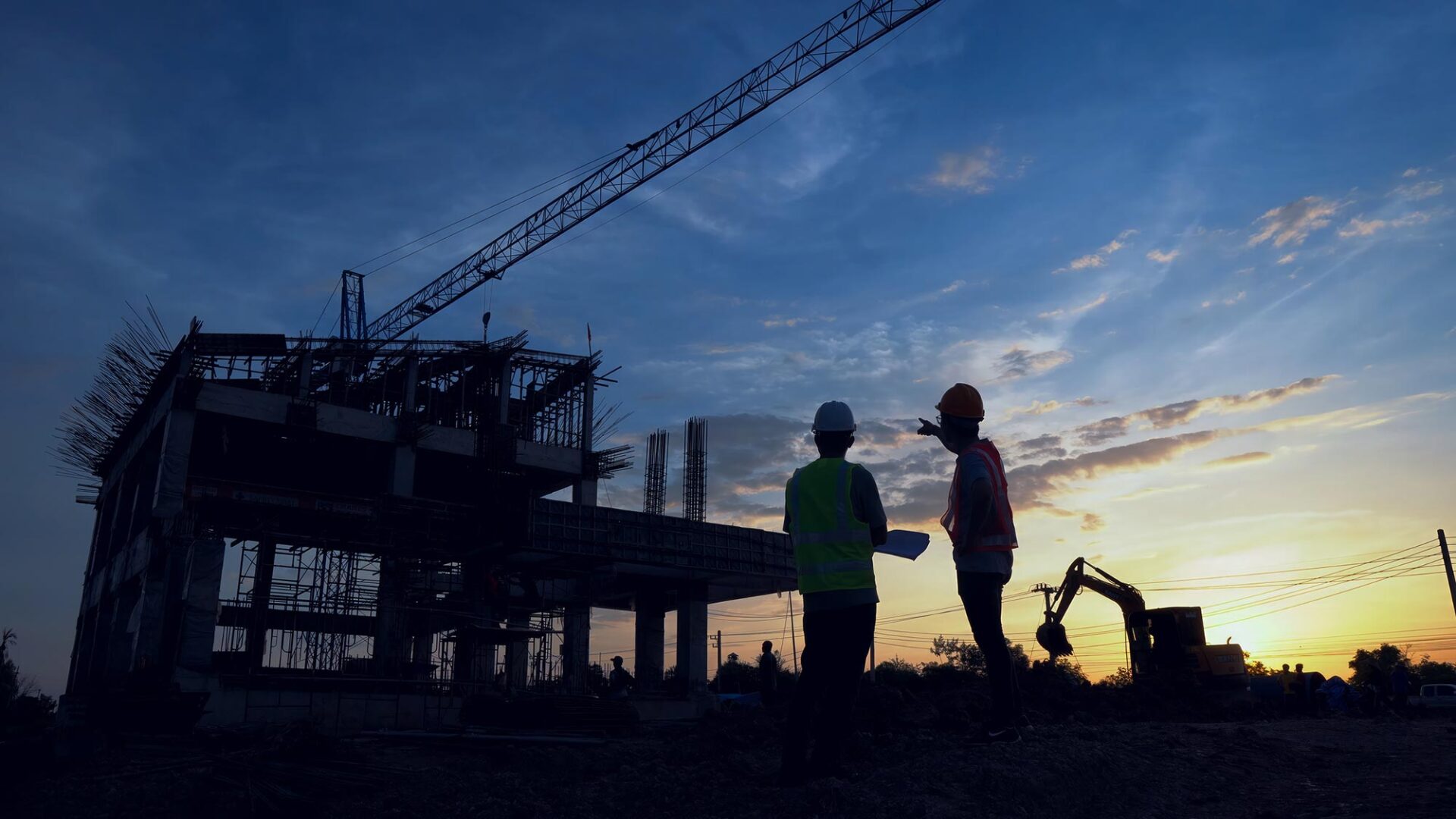Practice Areas
The Law Office of Julian Gross serves public and private sector clients in land use and infrastructure.
Community Benefits Agreements
The firm represents both public entities and advocacy coalitions in negotiating community benefits agreements (CBAs) – legally binding contracts specifying community benefits to be delivered by large land use development projects. Julian Gross is the leading attorney in the nation on CBAs, having negotiated dozens of successful agreements as well as having written and spoken extensively on the topic.
CBA negotiations by Julian Gross have included:
- Community benefits negotiations for offshore wind development and related infrastructure (Humboldt County, California – current)
- Bellwether District CBA (Philadelphia – current)
- Park Hill Golf Course CBA (Denver, CO – 2022)
- Cannabis industry CBAs (Concord, CA 2021)
- Henry J. Kaiser Center CBA (Oakland, CA – 2019)
- Exposition Point CBA (Los Angeles, CA – 2019)
- 350 2nd Street hotel development CBA (San Francisco, CA—2018)
- The “Reef” development project CBA (South Los Angeles, CA—2017)
- Facebook Campus Expansion CBA (represented advocacy coalition; 2016)
- Jobs Agreement Port of Oakland, Oakland Army Base (2014–2017).
- Warm Springs CBA (Fremont, CA—2015)
- Matheny Tract CBA re CaliCheese Processing Plant (Tulare, CA—2015)
- Oakland Army Base Jobs Policies and Agreements (City of Oakland, CA—2012)
- CBA for Colony Energy—Tulare Co-digester Project (Tulare, CA—2012)
- Lorenzo CBA (Los Angeles, CA—2011)
- Bayview/Hunters’ Point CBA (San Francisco, CA—2008)
- Dearborn Street CBA (Seattle, WA—2008)
- Oak to Ninth CBA (Oakland, CA—2006)
- Uptown CBA (Oakland, CA; 2005)
- Ballpark Village CBA (San Diego, CA—2005)
- Los Angeles International Airport CBA and related Cooperation Agreement (“LAX CBA”; Los Angeles, CA—2005)
- Hollywood and Vine CBA (Los Angeles, CA—2004)
- Marlton Square CBA (Los Angeles, CA—2003)
- Los Angeles Sports and Entertainment District CBA and related Cooperation Agreement (“Staples CBA”; Los Angeles, CA—2001)
- SunQuest CBA (Los Angeles, CA—2001)
- NoHo Commons CBA (Los Angeles, CA—2001)

Additional Resources
- Community Benefits Agreements 101, hosted by Department of Energy’s Office of the Secretary in collaboration with the Office of Economic Impact and Diversity (June 24, 2022)
- Navigating Binding Agreements in Clean Energy Projects, hosted by Energy Futures Initiative Foundation (October 29, 2024)
Project Labor Agreements
The firm specializes in negotiation of project labor agreements (PLAs) and community workforce agreements (CWAs) that advance multiple public purposes. The firm provides these services to public entities and to the affordable housing development community.
The firm has extensive experience in legal and policy issues presented by PLAs and related strategies and legislative approaches.
Representative clients in PLA negotiations and related legislative matters have included:
- State of California, Department of Toxic Substances Control
- State of Oregon, Oregon Department of Justice
- San Diego Association of Governments (SANDAG)
- Alameda Contra Costa Transit District (AC Transit)
- East Bay Municipal Utility District (EBMUD)
- Peralta Community College District
- City of Oakland, CA
- Nonprofit Housing Association of Northern California (NPH)
- California Housing Consortium (CHC)
- East Bay Housing Organizations (EBHO)
- Southern California Association for Nonprofit Housing (SCANPH)
- Silicon Valley at Home

Additional Resources
- Regional Workforce Equity Agreement, Portland Metro Region: Annotation and Analysis, Phase III, Law Office of Julian Gross and Estolano Advisors for San Francisco Foundation (Aug. 2024)
- Advancing Equity in Project Labor Agreements: Equity Action Plan and Phase II Report, Estolano Advisors & Law Office of Julian Gross for San Francisco Foundation (Nov. 2022)
- Improving the Effectiveness of Project Labor Agreements,” Estolano Advisors for San Francisco Foundation (Dec. 2020) (Julian Gross, Consulting)
Equity In Public Procurement
The firm has extensive experience assisting clients in ensuring equity in economic opportunities resulting from public construction and infrastructure development. We provide legal and technical assistance to diverse teams developing and adopting policies to promote:
- local and disadvantaged employment and training;
- inclusion of small and local contractors;
- diversity and antidiscrimination in employment and contracting;
- access to high-quality pre-apprenticeship and apprenticeship programs;
- prevailing wage enforcement; and
- robust implementation and enforcement of antidiscrimination laws.
We maintain expertise on conditions of federal funding, relevant state and local contracting laws, and applicable state and federal constitutional principles.

Julian Gross’s past and present work in local hiring and contracting policy initiatives includes:
- State of California, California Workforce Development Board (legal and technical assistance in state procurement high road policy development and training)
- Peralta Community College District (SLBE Program)
- Humboldt County, CA (local hiring, contracting, and community benefits policy development)
- City of Cleveland, OH (contracting and workforce policy development)
- PolicyLink. (legal advice and assistance to PolicyLink’s Racial Equity Governing Agenda Program and its numerous allies and partners, advocating for enhanced racial equity efforts in expenditure of federal infrastructure funds)
- State of California, Department of Toxic Substances Control. (Targeted Hiring Policy for Exide Cleanup Project, $200m+ cleanup of toxic contamination on thousands of residential properties)
- Jobs Agreement Port of Oakland, Oakland Army Base.
- City of New Rochelle, NY (Economic Opportunity and Nondiscrimination Policy)
- Treasure Island redevelopment, San Francisco, CA. (Represented Treasure Island Homeless Development Initiative in advocacy regarding local and disadvantaged hiring policies for construction and operation of Treasure Island redevelopment project)
- AC Transit, Bus Rapid Transit project. (Construction Careers Policy (targeted hiring) and Project Labor Agreement for $100 million, federally-funded transit upgrade project. Targeted hire requirements work within legal limitations for USDOT-funded projects, and implement requirements of U.S. Executive Order 11246 (goals for hiring women and minorities). Project Labor Agreement implements targeted hiring requirements.)
- Town of Babylon, NY. (First Source Hiring Policy, Wyandanch Rising Project; construction hiring policy applicable to private development in downtown revitalization effort in Town of Babylon, NY; policy provides a pipeline from tailored training programs to contractors on the project.)
- Oakland Army Base, City of Oakland. (policy development and negotiation of Jobs Policies, Project Labor Agreement, and Cooperation Agreement for the $500 million redevelopment of the Oakland Army Base)
- San Francisco Construction Local Hiring Ordinance. (developing and advocating for local hiring policy covering construction jobs in City of San Francisco’s public works projects)
- Staff for San Francisco Local Hiring Stakeholders’ Process, established by City of San Francisco and local foundations.
- City of Seattle (development and implementation of green jobs local hiring, contracting, and training programs)
- City of Los Angeles (development, enactment, and implementation of local hiring policy for construction jobs on public works projects)
- Represented organization regarding development, enactment, and implementation of local hiring policy for construction jobs on projects operated by the Los Angeles County Metropolitan Transit Authority (2010).
- Represented multiple organizations in advocating for statutory or administrative local hiring requirements or authority on federally-funded construction projects; included discussion w/ U.S. Department of Transportation counsel and staffs regarding D.O.T. regulations regarding local hiring on D.O.T.-funded projects.
- Represented nonprofit organization regarding development, enactment, and implementation of local hiring policy for construction jobs on projects operated by the Port of Los Angeles.
- Represented multiple parties in negotiation and implementation of local hiring requirements for permanent jobs in Hunters’ Point / Shipyard redevelopment project in San Francisco, California.
- Represented multiple organizations in negotiating construction employment local hiring requirements included in the climate change bill passed by the U.S. House of Representatives (2008).
- Represented organizational clients regarding development and enactment of local hiring policy for construction and permanent jobs in City of Richmond, California.
- Represented organizational client regarding development, enactment, and implementation of local hiring policy for construction jobs adopted by Los Angeles Community Redevelopment Agency.
- Represented multiple organizations in negotiating local hiring policy for permanent jobs in Ballpark Village redevelopment project in San Diego.
- Represented multiple organizations in negotiating with Los Angeles World Airports authority a local hiring policy for permanent jobs for LAX modernization, including negotiation with the Federal Aviation Administration regarding permissibility of local hiring under federal revenue diversion regulations.
- Represented multiple organizations in negotiating local hiring policy for permanent jobs in Marlton Square redevelopment project in Los Angeles, CA.
- Represented multiple organizations in negotiating local hiring policy for permanent jobs in Hollywood & Vine redevelopment project in Los Angeles, CA.
- Represented multiple organizations in negotiating with developer and Los Angeles Community Redevelopment Agency a local hiring policy for permanent jobs on the Staples Center / L.A. Live redevelopment project in downtown Los Angeles.
- Represented multiple organizations in negotiating local hiring policy for permanent jobs in NoHo Commons redevelopment project in Los Angeles, CA.
- Retained by City and Redevelopment Agency of East Palo Alto, California, to advise policy regarding local hiring and contracting policy governing construction and permanent employment in subsidized development projects.
- Represented multiple organizations in advocacy for local hiring requirements for construction jobs on the Alameda Corridor Transit Project in Los Angeles Region; involved negotiation with the U.S. Dept. of Transportation regarding permissibility of local hiring under D.O.T. regulations.
- Represented multiple organizations in negotiation regarding compliance with U.S. Housing and Urban Development’s Section 3 local hiring requirements on HUD-funded construction projects in Long Beach, California.
- Represented multiple organizations in developing and advocating for local hiring and contracting policy governing construction and permanent employment in subsidized development projects in East Palo Alto.
Nonprofit Operations
The firm assists nonprofit clients on a variety of operational matters.
These include:
- contract negotiations and MOUs;
- board governance issues (including bylaws and board-staff allocation of duties)
- incorporation and nonprofit tax-exempt status applications;
- fiscal sponsorship and spin-off agreements;
- representation of quasi-public entities, such as assessment districts (BIDs, CBDs, etc.) and local economic development corporations.

